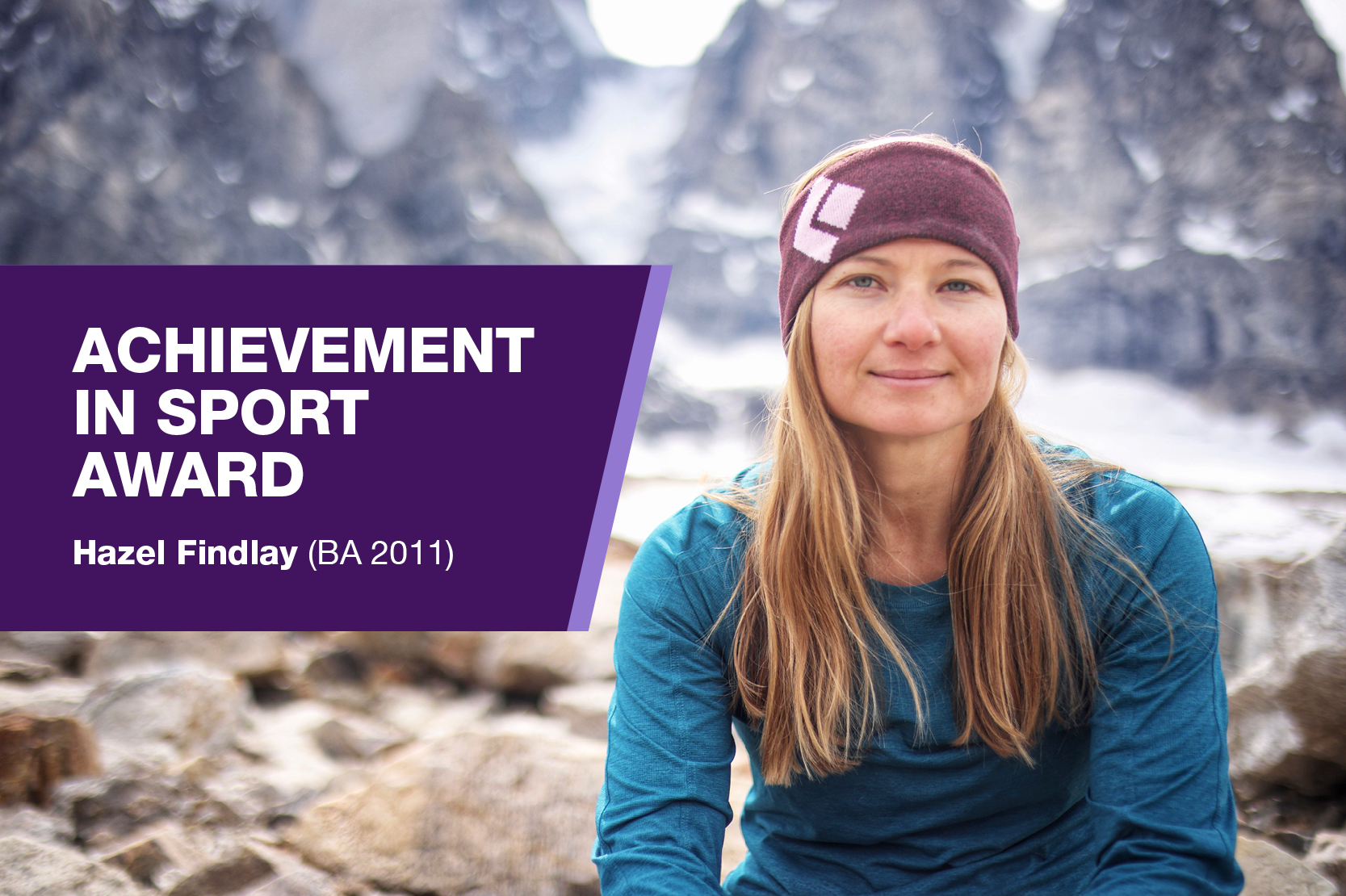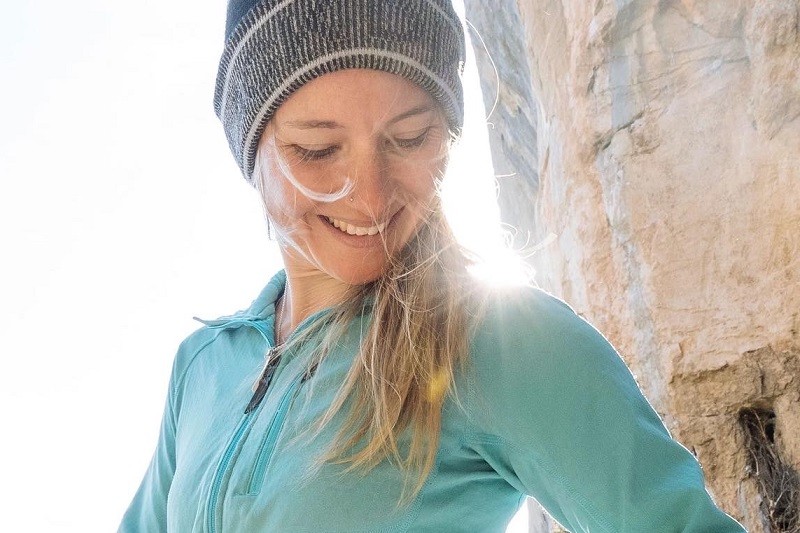
One of the world’s leading climbers, Hazel Findlay (BA 2011) has amassed an impressive series of firsts and achievements in the field, not least becoming the first British woman to free-climb El Capitan in Yosemite. This year she is the recipient of the 2023 Alumni Award for Achievement in Sport. We spoke to her about the intersection of sport and psychology, her time in Bristol and starting her own business.
On doing things that have never been done
Being the first at something isn’t necessarily inspiring in its own right, but it does add an extra challenge to wonder if it’s possible for you. I’ve always had a mindset of ‘try anyway’. It doesn’t matter if you fail, you still learn a lot and have a good experience.
For me, the challenge itself is inspiring. In the case of El Capitan, people had previously climbed it but no woman ever had. It is a slightly different challenge when you know that you’re the first woman to do something.
On her years at the University of Bristol
I liked being around people who were interesting and curious about life and their area of study. I really like getting into a subject, spending time thinking about one thing. I also love the city. I was born in Bristol and have a lot of family there, including my dad and my grandparents.
At school I was never sure if I was a scientist or if I wanted to study the arts. When I was applying to go to university, I looked at chemistry, geography, philosophy, politics. I hated the fact that I had to just pick one. I chose philosophy because I enjoyed it the most but young people are often told to do the subjects that has the best job outcomes.
When I was at university, I spent a lot of time wishing I was climbing. Straight after Bristol, I became a professional, full-time climber and sometimes I wondered why I’d even done a degree. I wasn’t using it in my climbing and I had student debt. But I maintained my love for philosophy, and now that I’m coaching, a lot of philosophy and psychology from my studies comes back to me and I use those skills all the time in my job now.
Sometimes it feels like a degree isn’t going to be useful and then later in life you look back and actually, it was really important to get that education and acquire those skills.
On starting a business
The things inside our minds, like resilience and strength of mind, make the difference between a good and a bad climber, or between a climber who is having fun and one who isn’t. Before I started coaching, not many people were talking about building psychological resilience in climbing, just about how to get fitter, stronger, more flexible. I would see people train very hard in the gym and then go out on the rock only to be scared or anxious or distracted. This led me to start coaching in 2015.
Eventually, I wanted to reach more people than I could with 1-to-1 work, so I built an online course. That was the thing that prompted my coaching to expand into a business, Strong Mind Coaching. I’ve learnt that having your own business is way more stressful and scary than any rock climbing challenge. It’s also really rewarding in a different way.

On fear
My best advice is to focus on building self-awareness around what frightens you and why. Only then can you gradually expose yourself to those things. You hear a lot of mottos like ‘just do it’ or ‘just be afraid and go for it.’ That doesn’t really work because we don’t do well when we’re too anxious and afraid. We need to graduate in smaller steps before taking on a huge challenge. You need to break the challenge down, but you can’t do that without self-awareness. Build awareness of your own psychology and your own fears.
On her inspiration
I’m inspired by people who break boundaries but also enjoy what they’re doing and have fun. They are not doing it for status or because other people expect something of them. I think in the past we’ve lacked those sorts of role models. We’re more focused on mental health and wellbeing now, so it’s good to see our role models love what they’re doing.
On the benefits of sport
Sport is good for young people because it teaches you to be self-motivated. It teaches you the difference between internal and external motivation. School is about external motivation, passing the test and doing it for the results. The people who are best at sport are the people who really love it.
What does it mean to you to have been awarded the 2023 Alumni Award for Sport?
Niche sports like climbing don’t always get recognised in wider culture, so receiving this award is nice. It’s especially nice for my Mum, who spent a lot of time driving me to climbing when I was younger! I feel like she deserves this recognition above all else.
Each year, the University of Bristol recognises alumni who have made remarkable contributions to society through the Alumni Awards. You can see the full list of our 2023 winners on our website.
